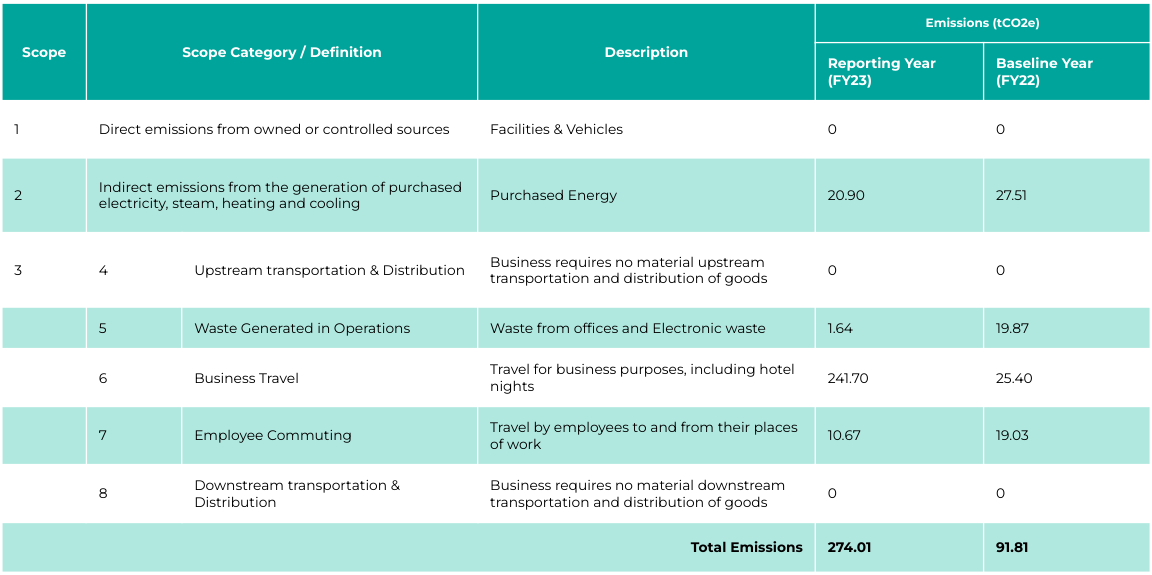CTS Sustainability Policies
Together, CTS and Google are partnering to help customers create competitive advantage, operational efficiencies, and new ideas. Here you’ll find our sustainability policies.
Did you know that you can drop off your used batteries at our UK on-site locations to be recycled? Batteries that end up in landfill are a danger to the environment and can leak hazardous chemicals, running the risk of fire as well as contaminating soil and water. Recycling your batteries is the best way to protect the environment and give valuable materials such as zinc, lithium and nickel, used inside batteries, a new life in making other products. To help reduce battery waste, you can now bring your batteries to our dedicated battery collection boxes on-site for recycling.
Supplier name: Cloud Technology Solutions Ltd. (CTS & CloudM)
Publication date: 25th July 2023
At CTS & CloudM, we’ve always pushed ourselves to do more for the world around us – it’s one of the reasons we are a B Corp and have internal boards focused on DEI, Charity and Environmental issues. They act as our moral compass, always encouraging us to “do the right thing” in everything we do.
As such, we’re now creating our roadmap to net zero emissions by 2030.
Baseline emissions are a record of the GHGs that have been produced in the past and were produced prior to the introduction of any strategies to reduce emissions. Baseline emissions are the reference point against which emissions reduction can be measured. The Reporting Year is the calendar year 2023 and the Baseline Year is the calendar year 2022.
We note that, due to the COVID-19 pandemic in our baseline year, business travel had reduced, so as expected we do see an increase this year in certain areas, however, due to some large changes within building management and our policies, we have made some significant reductions in other areas.

We do not own any facilities, however, we have included improvements to be made in partnership with our building suppliers in our roadmap. With regards to vehicles, the company does not own, or use, any vehicles at this point.
We are accountable for energy in only one of our offices (our Manchester-based Headquarters). The combined emissions for electricity in this office over our Fiscal Year 2023 was 20,901 Co2 KG.
4. Upstream Transportation & distribution
We do not own the transportation or distribution of any goods sold. Most of our services are software and cloud infrastructure related and therefore have no requirement for transport. However, we do also work with Chrome suppliers to service our clients. Whilst we don’t have control over those suppliers’ processes, we have recently improved our procurement processes to include environmental and social impact.
5. Waste Generated in Operations
As a remote-first business, our employees work from a variety of locations, meaning that we are unable to calculate the general waste from each home location. On that basis, we’ve used the waste from our office locations in this section.
On average Manchester has 98 desk days used per week, London has 37 per week and Edinburgh 11 per week. The average employee will generate 2kg per waste per day. We don’t have much commercial waste with the exception of boxes and packaging from deliveries.
We have recycling systems in place in each location. At our main Manchester office we have a report that shows that 49% of waste is recycled, and 51% of waste is turned into RDF (refuse-derived fuel), nothing goes to landfill. 100% Cardboard and 100% of dry mixed recyclables are recycled, 30% of mixed waste is recycled, 70% is used for RDF.
In London, we know that 59% of waste is recycled and for our Edinburgh office we don’t have this information so we have presumed landfill until we get some more accurate data.

Aside from general waste, we also produce electronic waste due to the requirement for sufficient desk setups for our employees. For we dispose of electronic waste in two ways; repurposing (reusing internally or donating to local facilities charities, schools, etc.), and recycling using ICT Reverse. ICT reverse provides a detailed breakdown of what was re-used, recycled or destroyed.

Our total waste emissions were 1,640.02 Co2e(kg)
6. Business Travel
Our employees use three main modes of transport for business travel (train, plane, and car). We have used our internal data from our trainline business account, our travel consultants’ flight booking records and petrol expenses for car travel. This year we held an internal company event abroad, which contributed 98,330 Co2e(kg) (40%) of these emissions. The emissions for all business travel were 241,701.02 Co2e(kg).
7. Employee Commuting
Our employees work on a remote-first contract and therefore have no requirement to commute. However, some employees do choose to commute on a regular basis. We have asked our employees to complete a survey of how often they travel for work, the distance and how they travel. The total emissions for employee commuting have been calculated to be 10,670 Co2e(kg).
9. Downstream transportation and distribution
We do not own the transportation or distribution of any goods sold. Most of our services are software and cloud infrastructure related and therefore have no requirement for transport. However, we do also work with Chrome suppliers to service our clients. Whilst we don’t have control over those suppliers processes, our roadmap includes an extension of procurement processes to include environmental and social impact.
This resulted in total estimated emissions of 275,078 Co2e(kg).
This year:
We have made strides in consistent reporting on transport emissions this year using dashboards, and intend to improve that further to our other reporting metrics this year, we feel that this is imperative to set realistic targets.
We also want to gather data on more scope 3 emissions, such as employees working from home, purchases and the impact of our project work via Google.
We expect to see a reduction in travel emissions in FY24 due to a reduction in flights. We also aim to reduce our scope 2 and 3 emissions further by working closely with our building management.
Scope 1
Whilst we don’t have ownership over any of our premises we’re committed to partnering with our providers to improve their impact. We’re currently working with Bruntwood, our headquarters’ property owner, on piloting IoT control kits to manage our space for energy consumption. Following our testing, the successful components of this pilot will be rolled out to the wider Bruntwood portfolio of offices.
Scope 2
We will be taking two approaches for reducing our emissions from energy consumption:
We will initially focus on part 1 in the near term, then work on the implementation of smart switches, optimised air conditioning settings and reduction of standby usage for our electrical goods.
Scope 3
Purchased Goods & Services
In January 2023 we launched our new procurement assessment, this includes social and environmental reviews and will be used to make decisions on suppliers of goods and services. We are committed to assessing our current service providers and hardware suppliers (laptops, monitors, mobile phones), as well as all suppliers procured during that year.
Transportation & Distribution
Per the above explanation, we are also committing to assessing all hardware distributors used to supply our clients in year 1.
General Waste
Whilst general waste is not our largest source of emissions, it is also a challenge to reduce as materials used by our employees will continually depreciate. However, from FY24 we aim to increase the percentage of repurposed laptops we recycle by applying Chrome Flex OS and donating these to local schools or offering them to employees for a charitable donation.
Business Travel
Whilst we will continue to leverage our systems to allow people to collaborate remotely, we acknowledge we are unable to eradicate travel entirely. However, throughout 2024 we will be implementing policies to manage the use of business travel with the aim of cutting out all internal flights and prioritising the use of train travel for small to medium length journeys.
We understand that this approach does still create carbon emissions, and therefore commit to offsetting all business travel using an internally approved Gold standard offsetting partner. In the longer term, we will consider the use of electric vehicles for business travel.
Commuting
Similarly to business travel, we are unable to eradicate all emissions for commutes, though we commit to continuing our remote-first policy to ensure no unnecessary commuting. Because of this, we plan to continue our Carbon Offset Commutes policy creating innovative ways of engaging our people in its use.
In the longer term, we plan on using the data collected from our commute submissions to create data-driven incentives to encourage the use of electric vehicles and public transport over the use of higher-emission vehicles.
This Carbon Reduction Plan has been completed in accordance with PPN 06/21 and associated guidance and reporting standard for Carbon Reduction Plans.
Emissions have been reported and recorded in accordance with the published reporting standard for Carbon Reduction Plans and the GHG Reporting Protocol corporate standard and uses the appropriate Government emission conversion factors for greenhouse gas company reporting.
Scope 1 and Scope 2 emissions have been reported in accordance with SECR requirements, and the required subset of Scope 3 emissions have been reported in accordance with the published reporting standard for Carbon Reduction Plans and the Corporate Value Chain (Scope 3) Standard.
This Carbon Reduction Plan has been reviewed and signed off by the board of directors.

Signed by Bill Bates, Director
Last updated: July 2023
